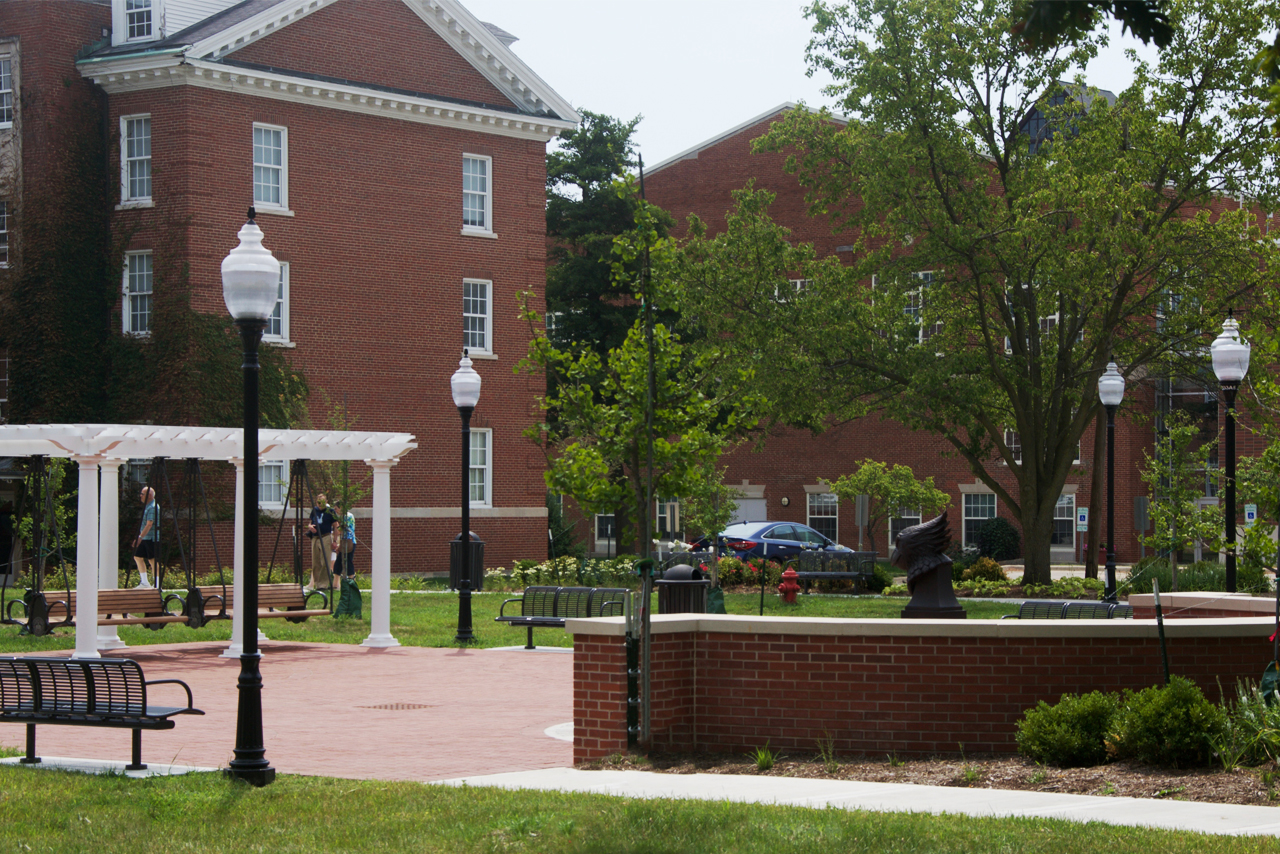The Department of Communication Sciences and Disorders (CSD) and the Mennonite College of Nursing (MCN) are in the second year of providing a joint simulation experience to their students. This innovative research project has evolved into an interprofessional aspect of both CSD and nursing curricula. The clinical simulation experience provides speech-language pathology (SLP) graduate students and nursing students an interprofessional learning opportunity to demonstrate medical terminology use, to communicate and to problem-solve for collaboration, and to identify co-occurring factors and formulation of interventions.
 The CSD and nursing interprofessional learning experience has been implemented and managed by Assistant Professor Jennine Harvey-Northrop, Ph.D., CCC-SLP, and Clinical Educator Rene McClure, CCC-SLP, both of CSD; and Assistant Professor Blanca Miller, Ph.D., RN, and Assistant Professor Melissa Jarvill, Ph.D., RNC-NIC, CHSE, CNE from the Mennonite College of Nursing. The program is offered twice during the academic school year, in the fall and spring semesters.
The CSD and nursing interprofessional learning experience has been implemented and managed by Assistant Professor Jennine Harvey-Northrop, Ph.D., CCC-SLP, and Clinical Educator Rene McClure, CCC-SLP, both of CSD; and Assistant Professor Blanca Miller, Ph.D., RN, and Assistant Professor Melissa Jarvill, Ph.D., RNC-NIC, CHSE, CNE from the Mennonite College of Nursing. The program is offered twice during the academic school year, in the fall and spring semesters.
The experience is formatted both online and in-person. Material is presented online through readings, group activities, and lecture formats to integrate academic, clinical, and research knowledge to prepare the students for the standardized, in-person simulation scenario. The simulation is held in the University’s Nursing Simulation Lab. Students gain the experience in a controlled clinical setting where both CSD and nursing faculty provide supervision and interprofessional feedback.
“The collaboration among the two disciplines allows students to learn from each other, problem solve in the moment, and work through cases together. This can’t be experienced or encapsulated in a typical teaching environment,” said Harvey-Northrop.
During the clinical simulation, SLP and nursing students are paired and given a clinical case to assess and utilize the knowledge gained from the online portion of the experience. During the simulation, students will develop teamwork and team-building skills essential to practice positive patient outcomes. Students will also have an opportunity to work on communication skills, conflict management and resolution strategies, negotiation skills, and relationship building.
“In the medical setting, it is necessary to make sure every professional is on the same page. It can be difficult when you may not fully understand what the other professional does,” said Robin Boyd, a SLP graduate student who participated in the simulation during the spring. “The simulation was a valuable learning experience for both the SLP and nursing students because we gained an appreciation for each other’s scope of practice and field.”

